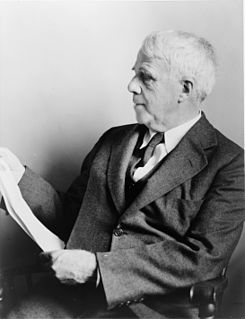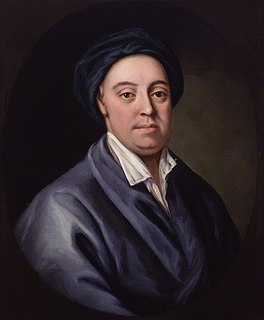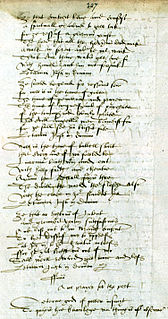
Robert Lee Frost was an American poet. His work was initially published in England before it was published in the United States. Known for his realistic depictions of rural life and his command of American colloquial speech, Frost frequently wrote about settings from rural life in New England in the early twentieth century, using them to examine complex social and philosophical themes.

Thomas Gray was an English poet, letter-writer, classical scholar, and professor at Pembroke College, Cambridge. He is widely known for his Elegy Written in a Country Churchyard, published in 1751.

Robert Southey was an English poet of the Romantic school, and Poet Laureate from 1813 until his death. Like the other Lake Poets, William Wordsworth and Samuel Taylor Coleridge, Southey had begun as a radical, but became steadily more conservative, as he acquired respect for Britain and its institutions. Other romantics, notably Byron, accused him of siding with the establishment for money and status. He is principally remembered as author of the poem After Blenheim and the original version of Goldilocks and the Three Bears.

James Thomson was a Scottish poet and playwright, known for his poems The Seasons and The Castle of Indolence, and for the lyrics of "Rule, Britannia!".

George Chapman was an English dramatist, translator and poet. He was a classical scholar whose work shows the influence of Stoicism. Chapman has been speculated to be the Rival Poet of Shakespeare's sonnets by William Minto, and as an anticipator of the metaphysical poets of the 17th century. Chapman is best remembered for his translations of Homer's Iliad and Odyssey, and the Homeric Batrachomyomachia.
Michael Roberts, originally named William Edward Roberts, was an English poet, writer, critic and broadcaster, who made his living as a teacher.

Richard Fleming, Bishop of Lincoln and founder of Lincoln College, Oxford, was born at Crofton in Yorkshire.
Jessie Pope was a British poet, writer and journalist, who remains best known for her patriotic, motivational poems published during World War I. Wilfred Owen wrote his 1917 poem Dulce et Decorum est to Pope, whose literary reputation has faded into relative obscurity as those of war poets such as Owen and Siegfried Sassoon have grown.

Lusty Beg Island is an island located in Lower Lough Erne, in County Fermanagh, Northern Ireland. In the early 20th century, Lady Hunt from Alberta in Canada owned Lustymore Island and Lusty Beg Island. When her residence, Glenvar House, on Lustymore was accidentally burned down, Lady Hunt moved to Germany.
Nationality words link to articles with information on the nation's poetry or literature.
Nationality words link to articles with information on the nation's poetry or literature.
Nationality words link to articles with information on the nation's poetry or literature.
Nationality words link to articles with information on the nation's poetry or literature.
Nationality words link to articles with information on the nation's poetry or literature.
Wever, De Wever, or Wevers may refer to:
This article is focused on English-language literature rather than the literature of England, so that it includes writers from Scotland, Wales, the Crown dependencies, and the whole of Ireland, as well as literature in English from countries of the former British Empire, including the United States. However, until the early 19th century, it only deals with the literature of the United Kingdom, the Crown dependencies and Ireland. It does not include literature written in the other languages of Britain.
Robert Pakington was a London merchant and Member of Parliament. He was murdered with a handgun in London in 1536, likely the first such killing in the city. His murder was later interpreted as martyrdom, and recounted in John Foxe's Acts and Monuments. He was the grandfather of Queen Elizabeth I's favourite, Sir John "Lusty" Pakington.

Poetry of Scotland includes all forms of verse written in Brythonic, Latin, Scottish Gaelic, Scots, French, English and Esperanto and any language in which poetry has been written within the boundaries of modern Scotland, or by Scottish people.
William Hayward Roberts was an English born schoolmaster, poet and biblical critic, cleric and Provost of Eton College.







